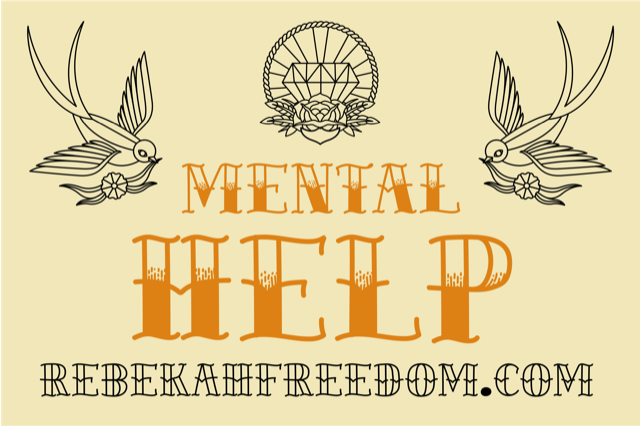|
Bringing Peace to Your Life: Coping with suicide
Suicide is a serious topic. Death is not. Death is something we are all going to experience. According to thermodynamics and the stuff Einstein postulated we are just going to change the form of energy we are in; from tangible to intangible. Speaking of energy, I’m really tired today. I’m the kind of tired that happens when the caffeine wears off and about 6 months of stress starts to set in. Sometimes I like to call this tailspin tired, because my self-care goes to shit. The time I do spend in bed I feel guilty for because I could be doing something that is advancing my mission of making six-figures and be a global leader. I have to fake caring about humans when I’m this tired. And that’s pretty much what adulthood is, you are tired and a puppet to various substances to control your mood. Further, as an adult you are tired because the bliss of ignorance and wonderment that came as a buffer to the outerworld in childhood has totally worn off. In fact, many of us are in therapy to deal with the shocking awareness that our childhood was full of abusive or neglectful authority figures. That’s just the baseline of what we have to negotiate in adulthood. Then add onto it the fact we don’t die in our thirties due to plague anymore. Some of us live into our 80’s. Eighty years of life is long and redundant. And within that timespan some of us start families. Families! The nerve. Families are like a petri dish for dysfunction. Yet, every day, someone gets pregnant and then attempts to impart sub-par survival skills to their offspring. Then those children grow up and commit suicide; sometimes as young as 8 years old. There is no one reason why a person takes their own life. However, thematically speaking, despondency or disillusionment are often the underpinning energies that justify the act. It’s a right we are all given once we develop into a place of metacognition--being aware of ourselves. We, at any moment, can bring a halt to our bodies aliveness and choose to die. Some people get really up in arms about suicide and deem it a sin. I feel neutral about it. In fact, I consider killing myself about once a month for various reasons--mostly because my vision for a better future becomes marred with images of destitution. Sometimes I will feel suicidal because I have to do laundry--again. Other times I will want off this planet because the gap between what I want and getting it seems insurmountable. And then there are those moments where I’ve completely depleted myself by trying to give others what I need in an attempt to experience reciprocity. That cycle is a real black hole. Thinking about ending your life is natural; even philosophical. However, as a species it seems we share a collective understanding that bringing an intentional end to one’s life violates the laws of nature. We are supposed to let disease take us instead or some other random act of violence that eviscerates us from the face of the planet will be the thing that ends us. The real intellectual quandary is that sorrow and anger always seems be the experience of those who are in the line of suicide; meaning they are the ones who lost a loved one that died on purpose. So now, imagine, an adult with all the adult pressures being compounded by the unbearable pain of sorrow and anger. Their mind has to do some form of acrobatics to rectify the injustice that they must go on living while their loved one has simply chosen to exit life. This process of rectification often is experienced as guilt echoed in the phrase, “If only I would have known, I could have done something.” It’s rare you can convince a person to do anything once they have committed their mind towards something. In this case, most people feel great relief once they have chosen to “end things”. But, then there are those individuals who don’t want to die. They want the experience of death without bringing an end to the life in their body. Addiction is a type of ambivalent suicide. And I only bring this up to say there are degrees to which we begin to die before we start to truly live. The erosion of the soul happens to be the path to such a life. So how do we bring peace to our lives in the face of such difficulties? We let things die like old worn out attachments. We reconcile past hurts. We actively participate in forgiveness. We fully participate in the grief process. We devote ourselves to spiritual practice that reinforces non-judgement. There are so many things that activate peace in our lives. But, for the sake of this conversation let’s elaborate on the items I just listed. Let Attachments Die Nature is full of cycles and rhythms. We are not meant to stay children forever. We are not supposed to cling to our youth. Rather, we continue to grow and evolve. But the “stuckness” every life-coach on the face of the earth is working to solve comes from an adaptation to feeling comfortable in “what we know.” The distillation of Buddhist teachings refers to this as grasping. We hold tightly to ideas in a way that defines our limitations. Then we begin to romanticize those limitations as wishes that are on the precipice of being realized if we just give them a little more of our time and life-force energy. Let Them Die That is the natural way of things. We all must experience seasons of our lives and relationships. We all must embrace winter as a time of internal reflection and spring as a time to weed the garden. So, the first step of bringing peace to your life, especially when if you are in the line of suicide, is to experience it as a season of your life that carries the promise of transformation in it. Reconcile Past Hurts. When we focus more on what we gained more than what we lost, reconciliation can begin. I mean, that sentence would make a good meme. But, the reality is we want to lose weight, gain friends, lose pain, and gain pleasure. So loss and gain are relative. So are the things that hurt us because sure as night follows day, when we endeavor to understand why we hurt we not only heal, we become more skilled at existence. We become more nimble and less encumbered by seeking justice for wrongs. Instead, when we reconcile past hurts, it is often through the mechanism of realizing that we have been the recipient of hurt as well as the perpetrator of it. The score card gets thrown away in favor of offering ourselves and others grace. And when suicide is the source of hurt, it can be reconciled through compassion and recognition that just as there are many ways to live so to are there many ways to die. Participate in Forgiveness Forgiveness, like love, is a verb. The essence of it is acceptance that the past is unchangeable but the relationship we have with the past is malleable. In fact, beyond forgiveness is blessing all that was, is, and will be. For all things can be transformed into good. Devote Ourselves to a Spiritual Process There is an element of life that defies logic and spirituality resides there. My sense of having a spiritual practice is engaging in being defined by no-thing. There are different pathways such as prayer or meditation that facilitate that experience. But, it has to be intentional. And when we allow ourselves to melt into the universe, some part of us can feel a connection with those that end their lives. We can offer them sacred space within our practice. Peace is not a static state. Like all of life it ebbs and flows like the tides. Bringing peace to our lives is an active practice. It requires attention and intention. There’s so much more I can say, but I’m tired. But what I will close this article with is that it’s up to you to live your life above the noise of pressure. It’s up to you to gain the skills to bring peace to your life. It’s up to you to practice forgiveness. And it’s up to you to not let the suicide of someone you love also take your life. I'M HERE TO HELP YOU.
1 Comment
|
Learn What to do NextI'll do my best to write about real world issues that stress us out and provide solutions to manage life successfully. Archives
February 2024
Categories |


 RSS Feed
RSS Feed